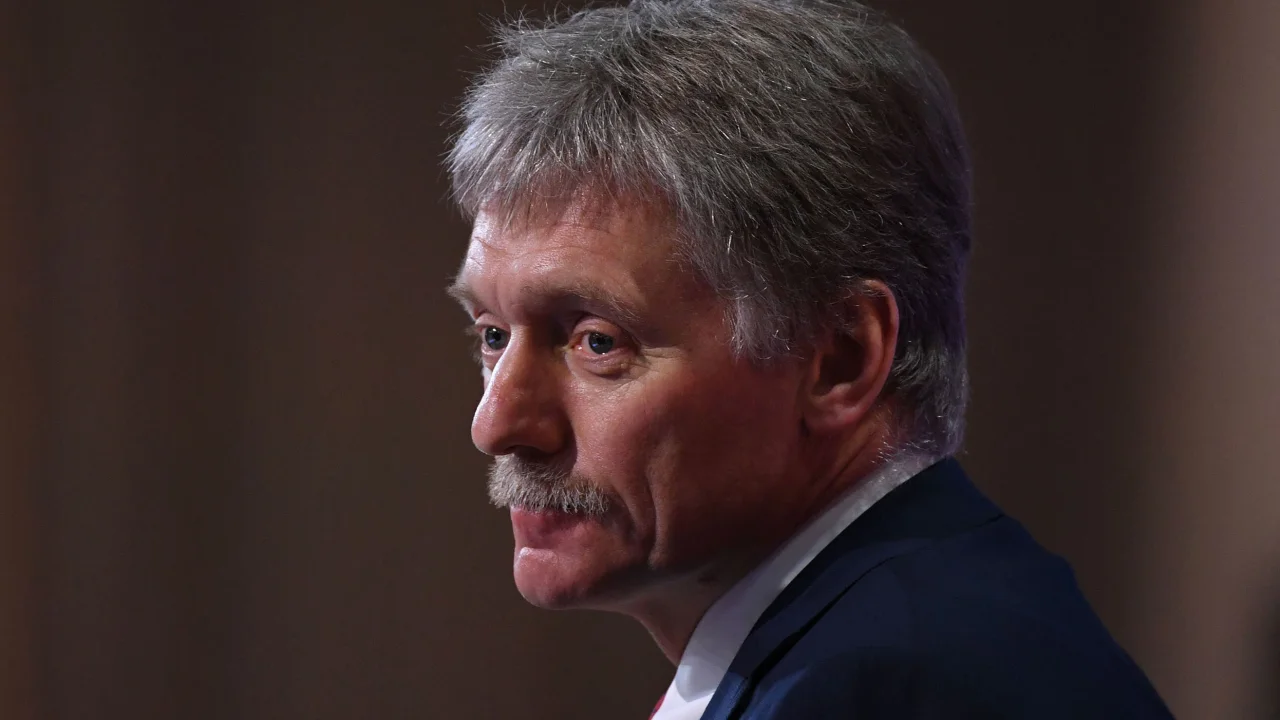Son Of Putin's Spokesman Claims To Have Served With Wagner In Ukraine
Son of Putin's spokesman claims to have served with Wagner in Ukraine during the conflict in 2014. The Wagner Group is known to have close ties with the Russian government and has been linked to several incidents in Ukraine, Syria, and Libya.
Author:Suleman ShahReviewer:Han JuApr 25, 20233.8K Shares154K Views

Son of Putin's spokesman claims to have served with Wagner in Ukraineduring the conflict in 2014. The Wagner Group is known to have close ties with the Russian government and has been linked to several incidents in Ukraine, Syria, and Libya.
The Controversial Claims
Nikolai Peskov made the claims in a series of social media posts, which have since been deleted. In his posts, Peskov claimed that he had been a part of a Wagner Group team that was sent to Ukraine to "support the Russian-speaking population" during the conflict in 2014. He also claimed to have been wounded during the fighting.
“„I considered it my duty… I couldn’t sit on the sidelines and watch friends and other people go there.- Nikolai Peskov
“„When I went there, I had to change my last name. Nobody really knew who I was.- Nikolai Peskov
The claims have been met with skepticism and controversy, given Peskov's father's high-ranking position in the Kremlin. The Russian government has been known to deny the presence of its military forces and PMCs in Ukraine, despite overwhelming evidence to the contrary.
The Wagner Group's Role In Ukraine
The Wagner Group, which is believed to have been founded by a former Russian military intelligence officer, has been linked to several incidents in Ukraine.
The group has been accused of being involved in the annexation of Crimea, the fighting in Donbass, and the downing of Malaysia Airlines Flight 17.
The group's involvement in Ukraine has also been the subject of international scrutiny and sanctions. The United States, the European Union, and several other countries have imposed sanctions on the Wagner Group and its members for their role in the conflict.
The Implications Of Peskov's Claims
The interview with Nikolai Peskov comes after the Wagner head, Yevgeny Prigozhin, revealed on Friday that the Kremlin spokesperson's son had served as a gunner in his mercenary squad. Prigozhin did not define the time period in question.
According to Prigozhin, Nikolai Peskov worked as a loader of an ammunition delivery vehicle in PMC Wagner for six months under fraudulent paperwork with a different last name.
According to the Wagner commander, Peskov received a three-week training at their camp in Molkino and then "departed for Luhansk."
Peskov's claims have raised questions about the Kremlin's involvement in the conflict in Ukraine and the extent of the Wagner Group's activities. The claims also come amid escalating tensions between Russia and Ukraine, with fears of a potential invasion by Russian forces.
The Russian government has not officially commented on Peskov's claims, and it remains to be seen whether they will acknowledge or deny them.
However, the claims have further fueled speculation about Russia's role in the conflict in Ukraine and its support for PMCs like the Wagner Group.
Final Words
The claims made by Nikolai Peskov have brought renewed attention to the role of the Wagner Group and Russia's involvement in the conflict in Ukraine.
The controversy surrounding the claims highlights the ongoing debate over the use of PMCs and the need for greater transparency and accountability in their operations.
The situation also underscores the importance of continued international efforts to address the conflict in Ukraine and promote peace and stability in the region.

Suleman Shah
Author
Suleman Shah is a researcher and freelance writer. As a researcher, he has worked with MNS University of Agriculture, Multan (Pakistan) and Texas A & M University (USA). He regularly writes science articles and blogs for science news website immersse.com and open access publishers OA Publishing London and Scientific Times. He loves to keep himself updated on scientific developments and convert these developments into everyday language to update the readers about the developments in the scientific era. His primary research focus is Plant sciences, and he contributed to this field by publishing his research in scientific journals and presenting his work at many Conferences.
Shah graduated from the University of Agriculture Faisalabad (Pakistan) and started his professional carrier with Jaffer Agro Services and later with the Agriculture Department of the Government of Pakistan. His research interest compelled and attracted him to proceed with his carrier in Plant sciences research. So, he started his Ph.D. in Soil Science at MNS University of Agriculture Multan (Pakistan). Later, he started working as a visiting scholar with Texas A&M University (USA).
Shah’s experience with big Open Excess publishers like Springers, Frontiers, MDPI, etc., testified to his belief in Open Access as a barrier-removing mechanism between researchers and the readers of their research. Shah believes that Open Access is revolutionizing the publication process and benefitting research in all fields.

Han Ju
Reviewer
Hello! I'm Han Ju, the heart behind World Wide Journals. My life is a unique tapestry woven from the threads of news, spirituality, and science, enriched by melodies from my guitar. Raised amidst tales of the ancient and the arcane, I developed a keen eye for the stories that truly matter. Through my work, I seek to bridge the seen with the unseen, marrying the rigor of science with the depth of spirituality.
Each article at World Wide Journals is a piece of this ongoing quest, blending analysis with personal reflection. Whether exploring quantum frontiers or strumming chords under the stars, my aim is to inspire and provoke thought, inviting you into a world where every discovery is a note in the grand symphony of existence.
Welcome aboard this journey of insight and exploration, where curiosity leads and music guides.
Latest Articles
Popular Articles